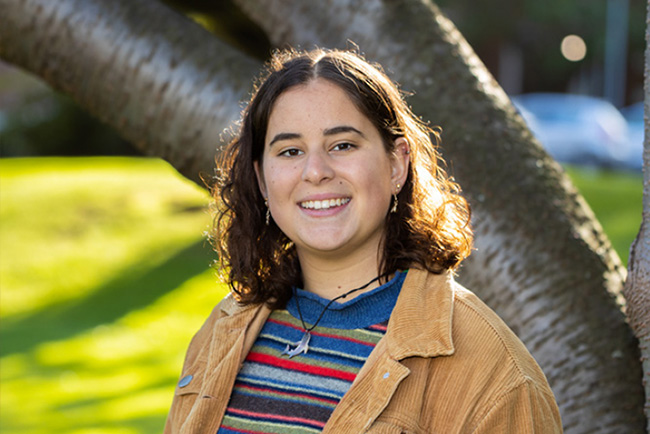
Bachelor of Science - Studying for a Postgraduate Diploma in Wildlife Management.
Amirah Osama's interest in zoology was sparked after taking part in a Hands-On at Otago course as a senior in high school.
“I really enjoyed it and decided to pursue it at university. I chose Otago because it's the best place to study zoology. We're often referred to as the 'wildlife capital of New Zealand', with albatross, penguins, sea lions and so much more in our backyard. I also knew from experience that Otago's Zoology department is a great department.”
“Going in, I thought zoology would be very conservation based. However, it also includes marine science, physiology, behaviour, evolution and neuroscience, which let me learn about different areas before specialising later on.”
Amirah now has a Bachelor of Science with a double major in zoology and ecology and is about to begin a Postgraduate Diploma in Wildlife Management, which is based in the Zoology department.
“My undergraduate degree definitely helped prepare me for wildlife management and I learnt many transferable skills that are useful for careers or further study, including lab, statistic, data collection and field work skills.
“Ecology and zoology students also get unique opportunities. In one paper, students travelled to Borneo to complete their field course in the rainforest there.”
A zoology degree can lead to a range of jobs, including working for government agencies such as DOC, going into research institutes such as NIWA and working for regional councils, she says.
“Many students also stay on to complete postgraduate studies, which can be in zoology or departments such as wildlife management, statistics, science communication, genetics, marine science, neuroscience, ecology and more! As well as my postgraduate diploma, I'm also beginning to plan my master's, which will look at microplastics and their effects on lake food webs and fish behaviour.”